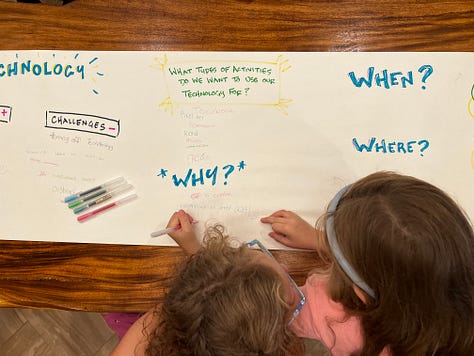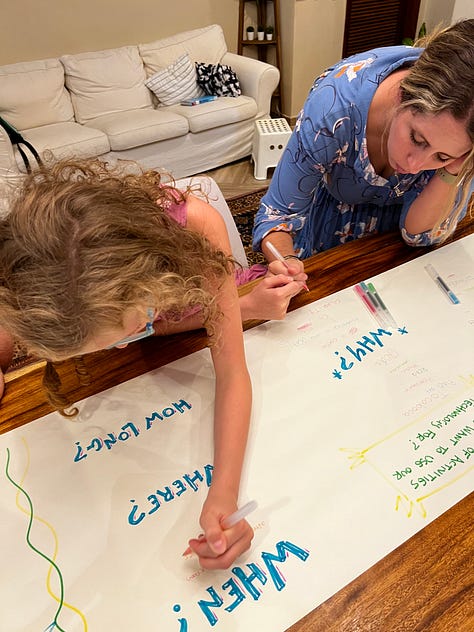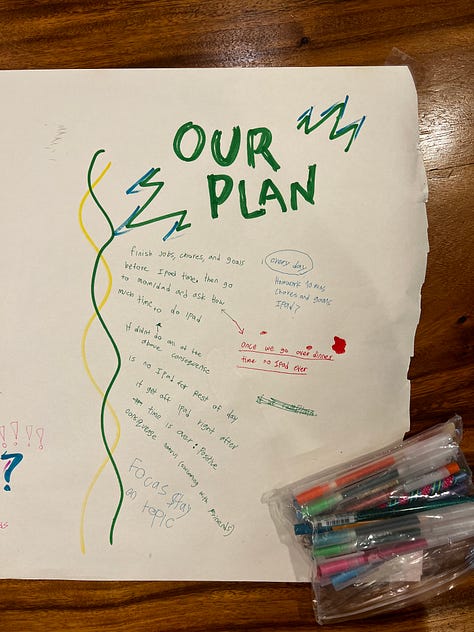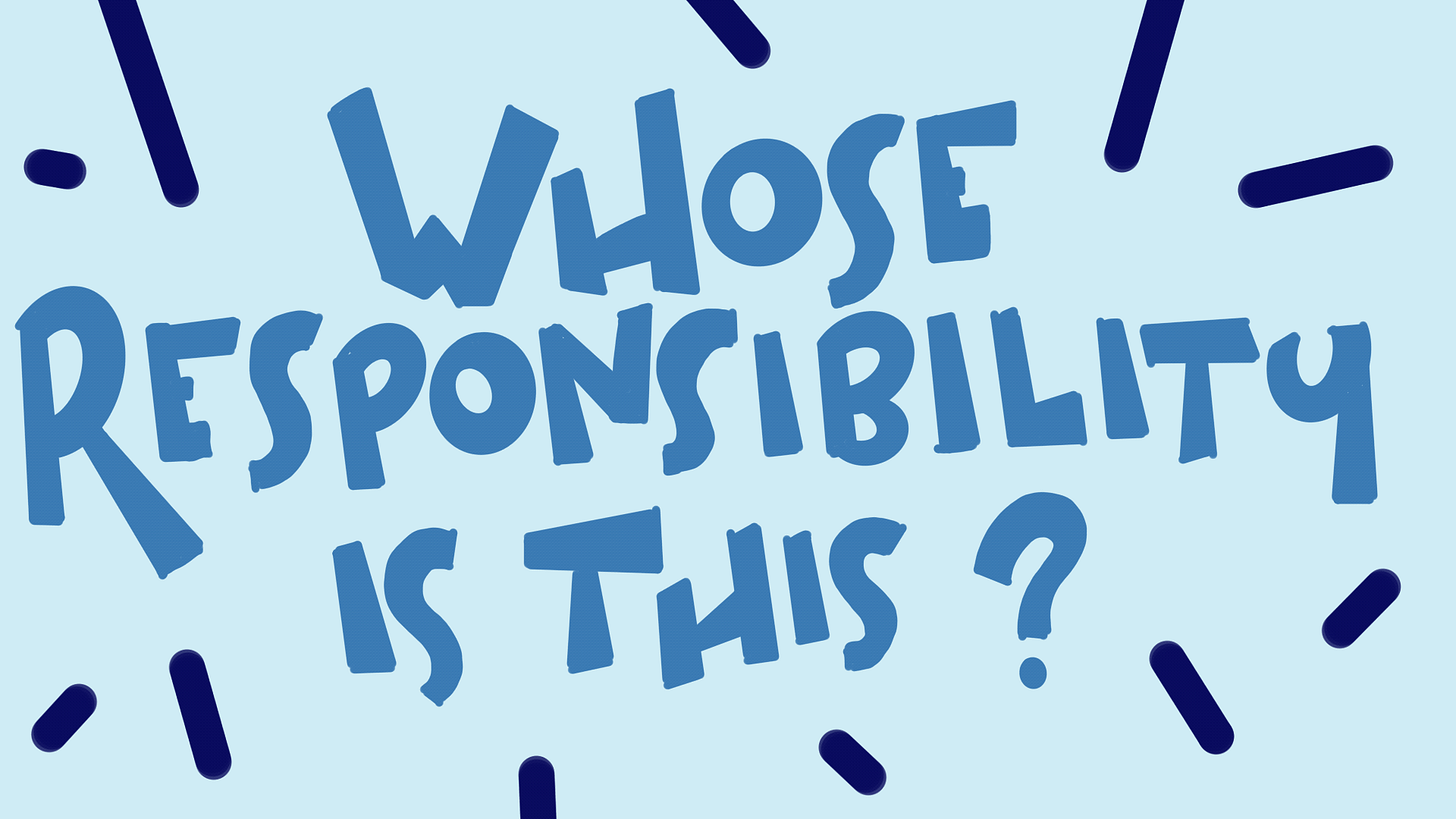Whose responsibility is this?
What were you doing in fifth grade?
Here’s what I remember about fifth grade. I had a teacher named Mr. Wooldridge who had long hair, an unreal handlebar mustache, and a cannon of an arm which we took full advantage of while playing football during recess. I spent most of my time playing outside with friends, reading “great illustrated classics,” and using tracing paper to practice drawing BMX bikes.
My oldest daughter is in fifth grade.
She dances, sings, has game nights, plays night games and loves playing with Legos.
And….at our school, every fifth grader is given an iPad.
Yes, its purpose is to support learning AND iPads come with a million other possibilities.
Games.
Web browsing.
Endless distractions intentionally designed to keep the user hooked.
This is new territory for us because we tend to have pretty limited media/screen use at home. We watch a movie or two each weekend as a family and when we fly they are allowed to play games or watch movies on an Amazon Fire.
It took less than a week of having “her” iPad for us to start seeing her tech use jump (and it wasn’t due to her dedication to math).
This sparked some behind the scenes conversations as Leah and I strategized around our next steps.
I’ve been here almost nine years and I’ve heard all sides of this argument.
“The school shouldn’t be giving these inherently addictive devices to kids…”
“The school should be doing more to train kids on how to be responsible…”
“The school should prepare our kids for the future and we need more tech, devices, robotics, coding, and now AI brought into the curriculum…”
Let’s put aside the technology piece for a moment because I can say that in many of the conversations I’ve been in, I hear this sentence stem a lot:
“the school should/shouldn’t…”
And as our parent engagement work here now sits in my portfolio this year, I hear this phrase even more.
These statements bypass the bigger question:
Whose responsibility is this?
“On any team, in any organization, all responsibility for success and failure rests with the leader. The leader must own everything in his or her world. There is no one else to blame. The leader must acknowledge mistakes and admit failures, take ownership of them and develop a plan to win. The best leaders don’t just take responsibility for their job. They take extreme ownership of everything that impacts their mission.”
Jocko Willink, Extreme Ownership
This book changed my life. It probably helped that I read it while also in the deep end of reading Ryan Holiday’s books on stoicism.
They gave me the answer to the question, “whose responsibility is this?”
The answer is always me.
Look at the technology example.
I have known for almost nine years that our students get an iPad in fifth grade. This was not a surprise. I could have done more over the last few years to prepare for this moment. If nothing else, we could have had conversations over the summer before the school year kicked off.
That’s on me.
It’s not the school’s responsibility to teach my kids how to navigate this powerful device—it’s mine.
So, we owned it and jumped in last weekend and held our first family technology meeting. And whose responsibility was it to ensure the meeting went well? Ours.
I love this type of stuff so I was pumped to break out the butcher paper, markers, and questions.



And now it’s our responsibility to continue these discussions and course correct as needed.
It might seem like a heavy burden to try and own everything that happens in your life. It’s the exact opposite. Extreme ownership gives you absolute control. You are no longer worried about the world around you because you own everything.
Let’s imagine that I decided I didn’t want my child to have an iPad in fifth grade, how would extreme ownership work?
I could gather data and studies and take them to the school.
I could try and rally other parents who feel similarly to see if a larger number had more impact.
I could choose a different school.
I could just take my daughter’s iPad from her each night when she got home.
The point is, I own it. And that ownership is more empowering than complaining or pointing the finger and saying, “the school should…”
Try it.
Think of something you’re frustrated with. Maybe it’s a situation at work. Maybe it’s a problem with a family member or friend. It can be anything. Ask yourself, “whose responsibility is this?”
Take extreme ownership and look at all of the ways you can impact the situation. I’m not saying you will like the solutions, or you think they are fair or fun, but you will feel empowered.
Keep Asking,
Kyle



